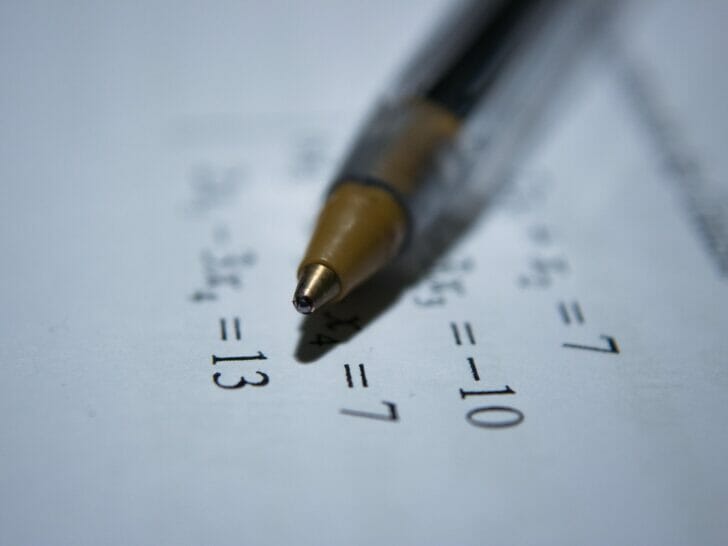The beginning of the school year often marks a period of reflection and decision-making for parents. One subject that frequently emerges at the forefront of educational priorities is mathematics. While traditional methods still dominate the landscape, innovative programs like Wonder Math are redefining how children learn math. This comprehensive comparison between the Russian School of Math and Wonder Math will provide insights into both approaches, with a spotlight on the unique benefits of Wonder Math.
Russian School of Math: A Detailed Exploration
The Russian School of Math follows a structured curriculum, built on time-tested principles.
Pros:
- Structured Curriculum: Emphasizes foundational skills, offering a clear progression from basic to advanced concepts.
- Challenging Problems: Encourages critical thinking and application, often going beyond standard school material.
- Well-established Reputation: Known internationally for its quality of instruction.
Cons:
- Rigorous Approach: The intense focus on analytical skills can be overwhelming and lead to burnout.
- Limited Creativity: The methodical nature of the curriculum may stifle creativity.
- Engagement Challenges: A lack of interactive content may hinder student engagement.
Personal Experiences:
Many students who have been through the Russian School of Math describe a substantial increase in their problem-solving abilities. However, some also report a lack of enthusiasm for the subject due to its rigid structure.

Wonder Math: A Creative Approach – An In-depth Look
Wonder Math stands out with its creative and child-centered approach, embracing storytelling as a means to convey mathematical concepts.
Pros:
- Story-driven Learning: Makes math relatable through narratives and real-world connections.
- Confidence Building: Encourages a positive attitude and boosts self-esteem in mathematical abilities.
- Holistic Development: Shapes resilient and independent adults by focusing on lifelong learning skills.
- Age-Appropriate Curriculum: Specially designed for the critical ages of 7 to 11.
Cons:
- Newer Program: May be less recognized in some educational circles.
Personal Experiences:
Parents and students who have engaged with Wonder Math often praise its creativity and the fun learning environment it creates. They value the confidence and enthusiasm it fosters in children.
A Deeper Dive into the Methodologies
Russian School of Math:
- Problem-Solving Emphasis: Focuses on developing the ability to tackle complex problems.
- Systematic Progression: Ensures a coherent transition through different skill levels.
- Less Flexibility: May not adapt well to individual learning styles and interests.
Wonder Math:
- Active Learning: Encourages exploration and hands-on engagement.
- Emotional Connection: Builds a love for math by making it a positive and enjoyable experience.
- Customized Experience: Adapts to the child’s unique interests and learning pace.
The Impact on Mental Well-Being
Wonder Math’s approach to protecting students’ well-being sets it apart from more traditional methods like the Russian School of Math. It recognizes the emotional aspects of learning and strives to make math a source of joy rather than stress.
The Role of Storytelling in Math Education
Wonder Math leverages storytelling to demystify mathematical concepts. This strategy allows children to visualize abstract ideas, making them more accessible. It contrasts with the Russian School of Math’s more formulaic approach, which may not resonate with all learners.
Conclusion: A New Path to Mathematical Brilliance
As we head back to school, parents have the chance to shape their children’s future by choosing the right educational approach. While the Russian School of Math has its merits, the innovative and child-centered philosophy of Wonder Math offers a refreshing alternative.
With its focus on creativity, confidence-building, and emotional well-being, Wonder Math is more than just a math program. It’s a holistic educational experience that prepares children for lifelong success.
Empower your child this school year with Wonder Math and watch them grow into brighter, more hardworking, resilient, and independent adults, ready to embrace a lifetime of opportunities.
Frequently Asked Questions (FAQ)
Q: What age group is the Wonder Math program designed for?
A: Wonder Math is specifically tailored for children aged 7 to 11. This age range is considered critical for building foundational math skills and a positive attitude towards the subject.
Q: How does the Russian School of Math approach teaching?
A: The Russian School of Math follows a rigorous and systematic approach, focusing on problem-solving skills, analytical thinking, and a structured progression from basic to advanced mathematical concepts.
Q: How does Wonder Math make learning math fun and engaging?
A: Wonder Math uses storytelling and active learning to teach mathematical concepts. By integrating math lessons with engaging narratives, Wonder Math helps children relate to the subject and see its relevance in everyday life.
Q: Is Wonder Math suitable for children struggling with math anxiety?
A: Yes, Wonder Math places a strong emphasis on building confidence and a positive attitude toward math. Its nurturing approach is designed to reduce math anxiety and foster resilience and enthusiasm.
Q: What are the main differences between the Russian School of Math and Wonder Math?
A: While both programs aim to enhance mathematical skills, their methodologies differ significantly. The Russian School of Math focuses on a rigorous, structured curriculum with an emphasis on problem-solving. Wonder Math, on the other hand, emphasizes creativity, active learning, and emotional well-being, making it more child-centered.
Q: Is Wonder Math recognized by educational institutions?
A: As a newer program, Wonder Math may not be as widely recognized as traditional methods like the Russian School of Math. However, its innovative approach to math education is garnering attention and praise from educators and parents alike.
Q: Can Wonder Math be used alongside traditional school curricula?
A: Yes, Wonder Math’s flexible and engaging approach complements traditional school curricula, offering an enriching experience that helps children connect with math in a fun and meaningful way.
Q: How can I decide which program is right for my child?
A: Consider your child’s learning style, interests, and emotional needs. If they thrive on structure and enjoy challenging problems, the Russian School of Math may be suitable. If they need a more engaging, confidence-building approach, Wonder Math may be the better choice.
Q: Where can I find more information about both programs?
A: Detailed information about the Russian School of Math can be found on their official website, while more about Wonder Math and its unique approach is available on the Wonder Math website.
Q: How can I enroll my child in Wonder Math?
A: Enrollment in Wonder Math can typically be done through their official website or by contacting a local representative. Specific details may vary based on location and availability.
By carefully considering these questions and aligning a program with your child’s unique needs and interests, you can make an informed decision that sets them on a path to mathematical success.

